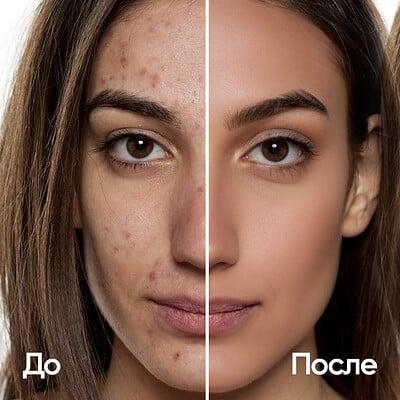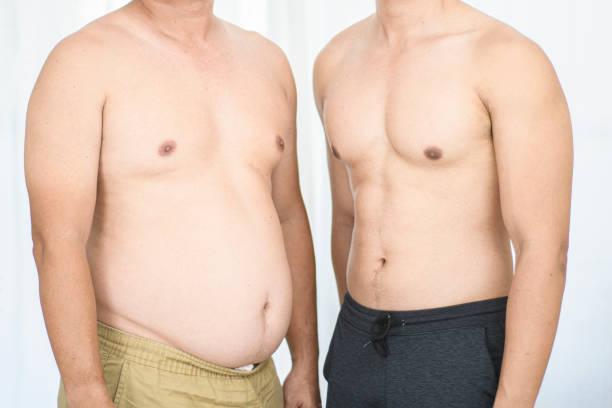Acne can be a frustrating skin condition that manifests in many forms and can be caused by various underlying factors. Two of the most common causes are hormonal fluctuations and bacterial infections. Understanding the difference between hormonal and bacterial acne is crucial for choosing the right treatment approach. While over-the-counter remedies may work for some, others may require professional help. Individuals dealing with persistent breakouts often turn to professional solutions like Acne Treatment in Islamabad for personalized and effective care tailored to the specific cause of their acne.
Understanding Hormonal Acne
Hormonal acne is triggered by fluctuations in hormones such as androgens, estrogen, and progesterone. These hormones stimulate the sebaceous glands to produce more sebum (oil), which can clog pores and lead to inflammation.
Common Characteristics of Hormonal Acne:
-
Location: Hormonal acne typically appears on the lower part of the face—chin, jawline, and neck.
-
Timing: It often flares up in sync with the menstrual cycle in women, particularly a week before the period begins.
-
Lesion Type: Deep, cystic, and painful pimples that don’t always come to a head.
-
Age Factor: More common in teenagers going through puberty, women with polycystic ovary syndrome (PCOS), or adults undergoing hormonal changes such as pregnancy or menopause.
-
Resistant to Topicals: Often does not respond well to topical treatments alone and may require internal regulation with oral medications.
What Triggers Hormonal Acne?
Several internal factors can set off hormonal acne:
-
Puberty: Hormone surges increase oil production.
-
Menstrual Cycle: Fluctuations in estrogen and progesterone can trigger breakouts.
-
Polycystic Ovary Syndrome (PCOS): Causes androgen dominance, leading to more severe acne.
-
Pregnancy and Menopause: Hormonal shifts during these phases may cause breakouts.
-
Stress: Triggers cortisol, which in turn can stimulate oil glands.
In many cases, treating hormonal acne requires hormonal regulation through medications like birth control pills, anti-androgens (e.g., spironolactone), or even hormone replacement therapy.
Understanding Bacterial Acne
Bacterial acne occurs when the pores become clogged with oil, dead skin cells, and bacteria—particularly Cutibacterium acnes (formerly known as Propionibacterium acnes). This leads to inflammation and the formation of pimples.
Common Characteristics of Bacterial Acne:
-
Location: Can appear anywhere on the face or body, especially the forehead, nose, cheeks, chest, and back.
-
Lesion Type: Includes blackheads, whiteheads, papules, pustules, and sometimes nodules.
-
Quick Spread: Tends to spread easily across areas with active oil glands.
-
Responsive to Topicals: Often improves with antibacterial treatments like benzoyl peroxide, salicylic acid, or topical antibiotics.
-
Less Tied to Hormones: More influenced by external factors like hygiene, cosmetics, or sweat.
What Causes Bacterial Acne?
-
Poor Hygiene: Infrequent cleansing can allow buildup of bacteria on the skin.
-
Comedogenic Products: Skincare or cosmetics that clog pores can contribute.
-
Sweat and Heat: Excessive sweating or occlusive clothing can trap bacteria against the skin.
-
Diet and Lifestyle: High glycemic diets and dairy consumption can exacerbate acne.
-
Touching the Face: Transferring bacteria from hands to the face encourages breakouts.
Treating bacterial acne usually involves topical antibacterial agents, gentle exfoliation, and sometimes oral antibiotics in more severe cases.
Key Differences Between Hormonal and Bacterial Acne
| Feature | Hormonal Acne | Bacterial Acne |
|---|---|---|
| Location | Jawline, chin, neck | Forehead, cheeks, nose, chest, back |
| Type of Lesions | Cystic, deep, inflamed | Whiteheads, blackheads, pustules |
| Timing | Cyclical (linked to menstruation/stress) | Continuous, not cycle-specific |
| Treatment Response | Poor response to topicals alone | Often responsive to topicals |
| Triggers | Hormones, stress, PCOS | Bacteria, sweat, hygiene, comedogenic products |
How to Diagnose Your Acne Type
If you are unsure whether your acne is hormonal or bacterial, consider the following:
-
Track the Timing: If your acne flares around your menstrual cycle or during hormonal changes (pregnancy, menopause), it’s likely hormonal.
-
Examine the Location: Acne isolated to the jawline or chin is often hormonal. Widespread acne across the face and body tends to be bacterial.
-
Notice the Lesion Type: Painful cysts that don't come to a head are characteristic of hormonal acne. Pustules and blackheads suggest bacterial involvement.
-
Check Product Reaction: If acne improves with OTC treatments like benzoyl peroxide, it’s more likely bacterial.
A dermatologist may conduct hormonal tests, skin swabs, or evaluate your history to give a proper diagnosis.
Combination Acne: A Blend of Both
Many people experience a combination of both types. For instance, you might have bacterial acne on your forehead and hormonal acne on your jawline. This requires a multi-pronged approach that includes both topical treatments and internal regulation. Personalized care plans from a skin specialist can help you effectively manage both types.
When to Seek Professional Help
You should see a dermatologist if:
-
Your acne is persistent and resistant to over-the-counter treatments.
-
You suspect a hormonal imbalance (especially if you also have irregular periods, hair growth, or weight gain).
-
Your acne is affecting your self-esteem or causing scars.
-
You experience large, painful cysts or nodules.
A dermatologist can offer treatments such as hormonal therapy, antibiotics, isotretinoin (for severe acne), or professional-grade procedures like chemical peels, light therapy, or laser treatments.
Get Expert Acne Diagnosis at SKN Cosmetics
Understanding whether your acne is hormonal or bacterial is essential for choosing the right treatment and preventing long-term skin damage. A misdiagnosis or using the wrong skincare routine can worsen the condition. That’s why consulting with experienced dermatologists is critical.
At the SKN Cosmetics clinic, specialists carefully assess your acne type and underlying causes to develop a treatment plan tailored to your needs. Whether you're dealing with hormonal cysts or bacterial breakouts, their advanced Acne Treatment In Islamabad delivers real results with a scientific approach, restoring confidence and skin clarity.





